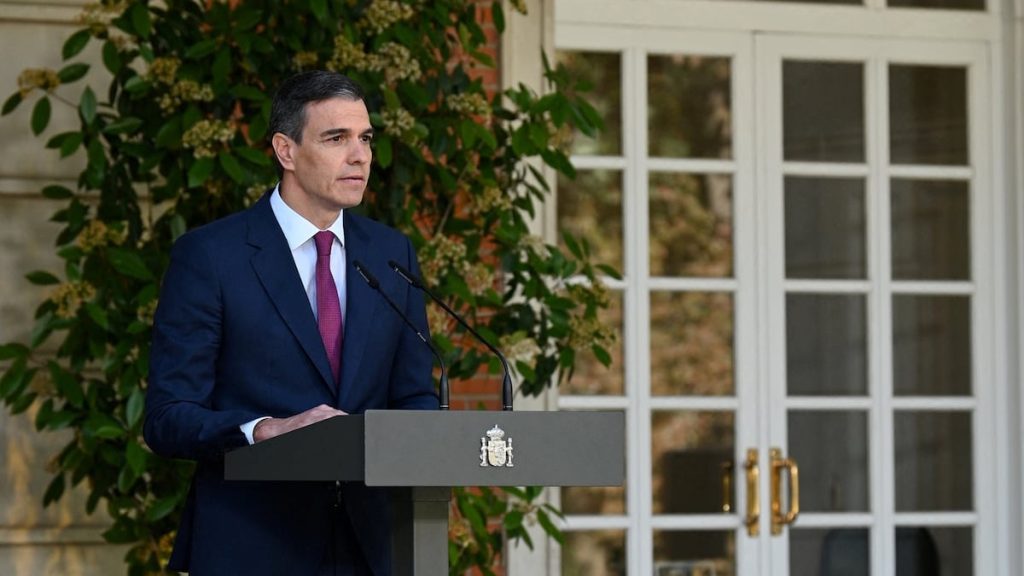Upon hearing Pedro Sánchez’s “historic” statement, one cannot help but think of Kant and his well-known definition of a joke as “an affection that arises from a tense wait that is suddenly resolved into nothing.” Five days of waiting, suspense, anticipation, and anxiety for this? Five days of silent hieroglyphs, fantastical conjectures, and elemental passions, for nothing? Was it all just a joke? The tension created was so great that it was difficult to resolve the plot in a satisfying way. The only ending that would have narratively fulfilled our wait would have been the one many Spaniards, both within and outside the PSOE, did not want: a solemn resignation accompanied by a tragic revelation. Thus, our relief on Monday was immediately followed by disappointment. This disappointment can be viewed from various perspectives, including the controversy surrounding the sincerity and calculation behind Sánchez’s withdrawal. Was it all planned from the beginning? Or does it stem from his narcissism and ambition for personal survival? Regardless, it is essential to consider the weight of the narrative structure and understand that our political relief was quickly overshadowed by cinematic disappointment.
Drawing political conclusions from this disappointment would be a mistake. Either Sánchez resigned in alignment with our narrative desire and against our political wish, or he simply told a “joke,” in the Kantian sense. Will it all turn out to be a joke? Will this tension be resolved into nothing? The truth is that our disappointment would have been less if, beyond the emphasized “full stop,” Sánchez had announced concrete measures. However, was that the right time and place to announce State policies that need to be negotiated with coalition partners and parties involved in the investiture process? After announcing his continuation in office, Sánchez could not, I fear, add much more, fueling the fear that his exciting narrative may have been nothing more than a joke.
Whether it was a joke or not, only time will tell. Those who try to infuse this strictly literary disappointment with political content should be reminded that if Sánchez has been able to reach this point by moving away from the PSOE of Felipe González, this beautiful and invigorating literary twist obliges him to further commit to democratic and socially progressive policies. While Sánchez’s absolute protagonism ahead of two important elections may harm Sumar, it also provides an opportunity for those on the left of the PSOE who seek more freedom, more civil rights, and more social equality. Sumar’s role in the Government must be more demanding, radical, and incisive following Sánchez’s speech. As Sánchez occupies all the space, Yolanda Díaz’s blurry and limping group sees its electoral visibility further diminished. However, because Sánchez occupies all the space, this Government is a little less of the PSOE and a little more of all those who supported his investiture. Today, for the first time, it is a coalition government, and Sánchez, more than ever, is the president of that “difficult Spain” that demands an end to the gag law, the renewal of the CGPJ, the liberation of the media from its sectarian oligarchic captivity, and progress in deep social policies. Whether calculated or sincere, it is politically convenient for us to believe in his sincerity. Whether calculated or sincere, it truly doesn’t matter. Sánchez’s narrative, which has made us aware of the coup attempts in Spain and the world, also opens the opportunity to turn this legislative term into a global countermodel. Many people within the PSOE (and especially the furious right-wing factions) may want Sánchez’s declaration to be just a joke; Sumar, if it still wants to be meaningful, will have to take him up on that and turn political relief and literary disappointment into new laws, mobilizations, and narratives.















